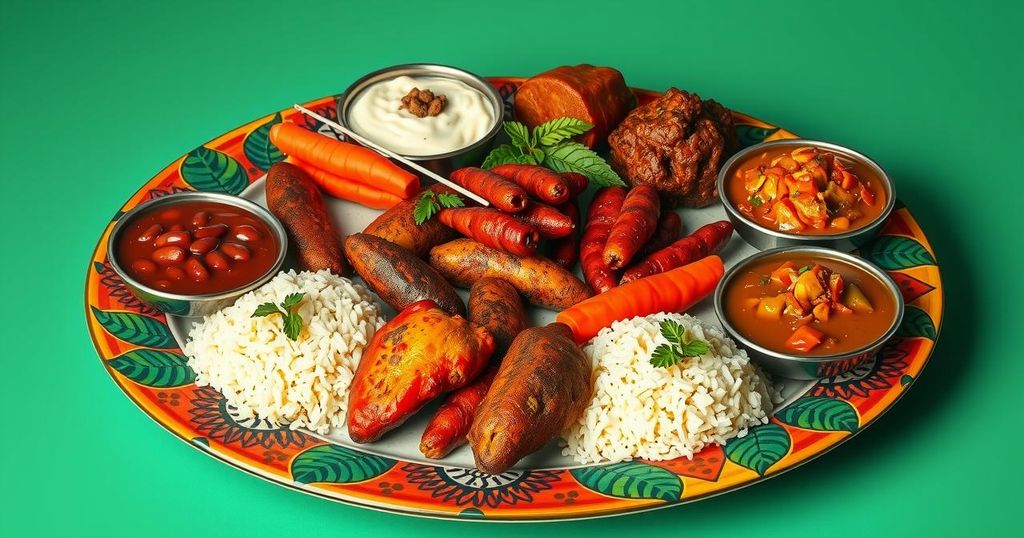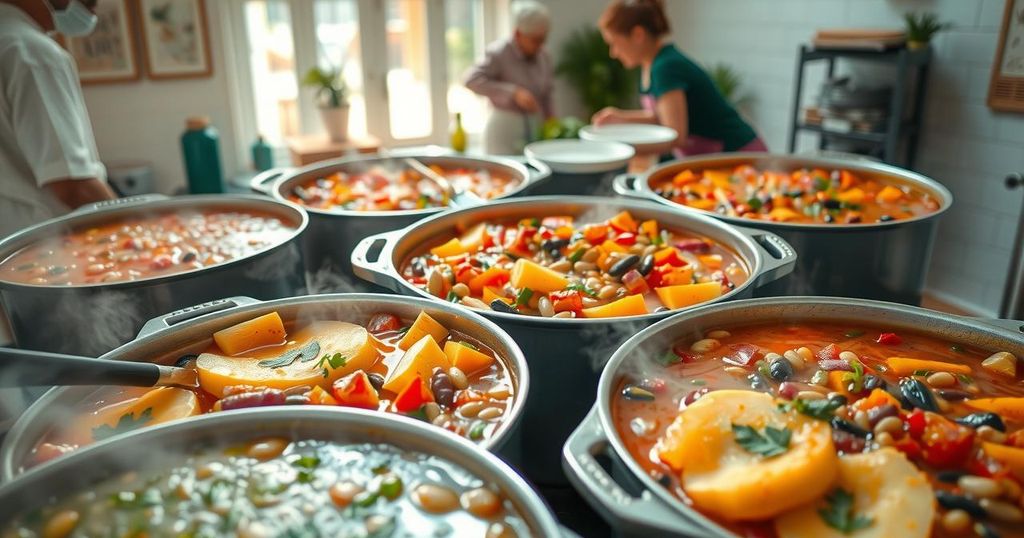Six Nigerian Foods Prohibited for Import to the UK and Their Reasons
Traveling to the UK from Nigeria necessitates awareness of food import restrictions. Prohibited items include meat, dairy, unprocessed shellfish, ungutted fish, fresh fruits and vegetables, and raw nuts. These regulations protect public health and local agriculture. Travelers should confirm current import guidelines and airline policies to avoid issues at customs.
Traveling from Nigeria to the United Kingdom is an exciting venture; however, it is crucial to understand the food items that are restricted at the UK border. The UK maintains rigorous import regulations designed to protect public health, local agriculture, and to prevent the transmission of pests and diseases. Consequently, certain Nigerian foods are prohibited.
Awareness of these restrictions can prevent issues such as confiscation of items, fines, or unnecessary delays at customs. Import regulations are subject to change, hence it is advisable to verify the latest guidelines prior to travel. Additionally, confirming the policies of airlines and travel operators regarding food items is prudent.
Here are six Nigerian foods that are not permitted for import to the UK, alongside the rationale for each restriction:
1. Meat and Meat Products: Transporting any form of meat—whether raw, cooked, dried, or processed—is strictly forbidden. This category encompasses beef, chicken, goat meat, suya, kilishi, sausages, and meat-based dishes. Such restrictions are essential for preventing outbreaks of animal diseases, including foot and mouth disease.
2. Milk and Dairy Products: Milk and any dairy items such as cheese, butter, and yoghurt are prohibited. The only exception is powdered infant milk or special medical food, which must remain unopened and properly branded without refrigeration requirements. These measures are in place to avert the possibility of introducing harmful bacteria and diseases.
3. Unprocessed Shellfish and Snails: Raw shellfish such as mussels and oysters, as well as live snails, cannot be brought into the UK. If transporting snails, they must be cooked, shelled, and preserved prior to travel. These regulations help maintain food safety and mitigate the risks associated with invasive species.
4. Ungutted Fresh Fish: Passengers are permitted to carry up to 20 kilograms of fish, provided that fresh fish has been gutted beforehand. While processed fish such as dried, cooked, or smoked varieties are acceptable if commercially packaged, whole, unprocessed fish are strictly prohibited.
5. Fresh Fruits and Vegetables: Most fresh fruits and vegetables cannot enter the UK unless accompanied by a phytosanitary certificate from the departure country’s plant health authorities, verifying their pest and disease-free status. Items like watermelon, pawpaw, and various berries, along with leafy vegetables such as ugu, bitter leaves, and scent leaves, are notably restricted without proper certification.
6. Raw Nuts and Seeds: Generally, unpeeled, unpackaged, and unprocessed nuts and seeds are not allowed without a phytosanitary certificate. This includes raw groundnuts, cashews, almonds, and melon seeds (egusi), as they may harbor pests or diseases.
In summary, it is vital for travelers from Nigeria to be informed about the UK’s strict import regulations regarding food items. The prohibition of meat and meat products, dairy items, raw shellfish, ungutted fish, fresh fruits and vegetables, as well as unprocessed nuts and seeds serves to protect public health and local agriculture. Travelers should remain vigilant and verify current regulations prior to journeying to avoid any inconveniences at customs.
Original Source: businessday.ng




Post Comment